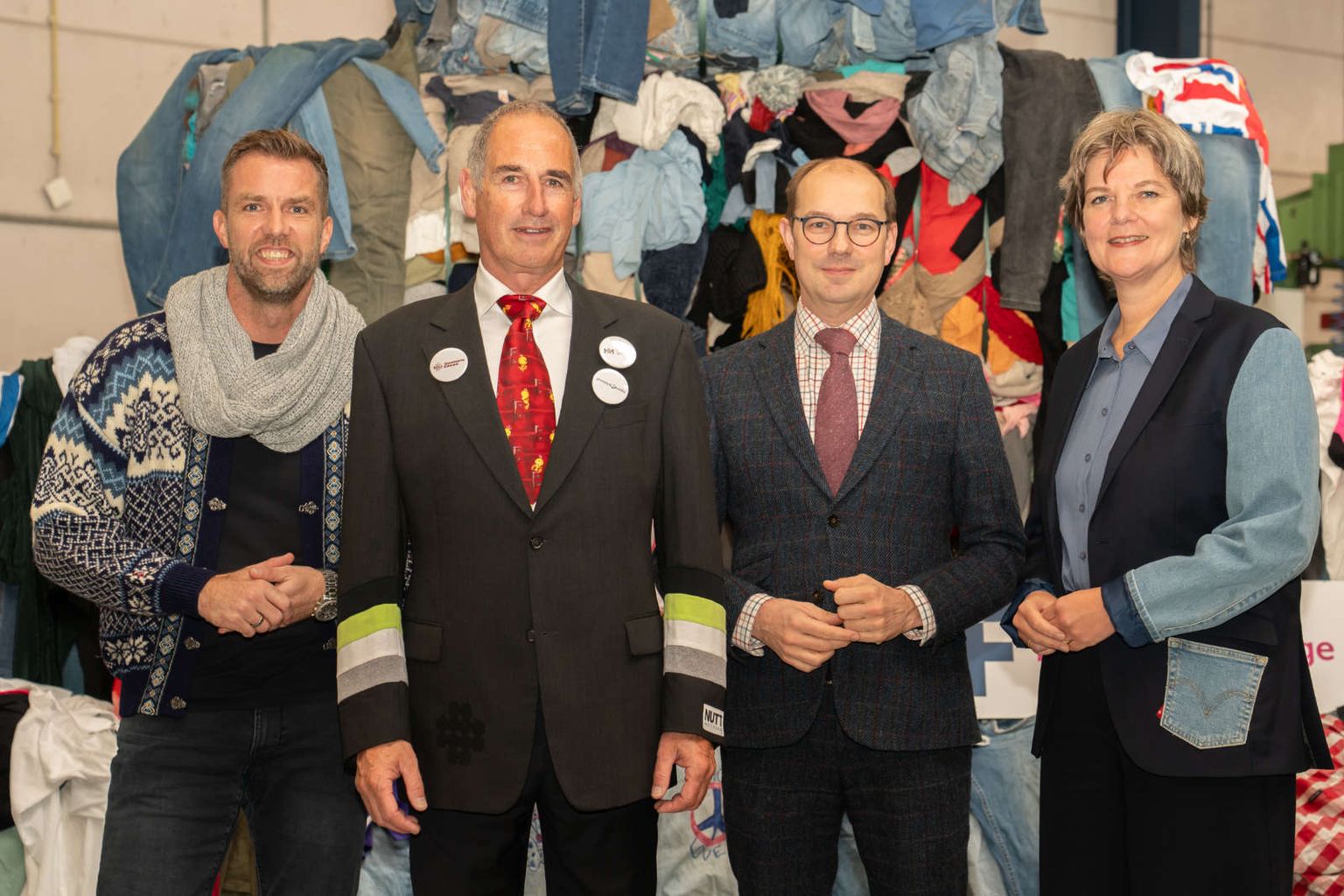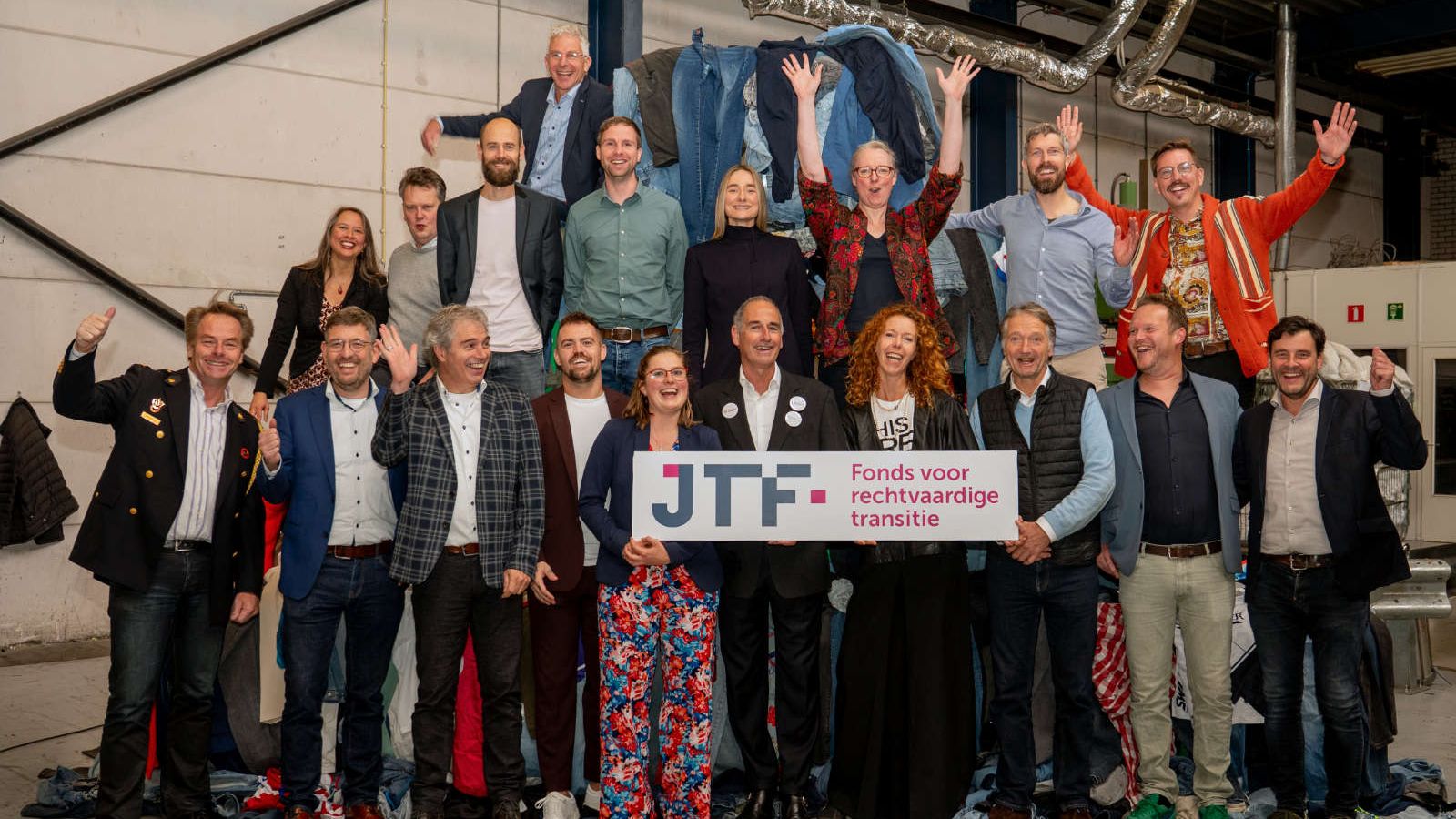
Council member Rink from the municipality of Emmen, Graft (managing director of Sympany) and the provincial deputies Bennema (Groningen) and Meeuwissen (Drenthe).
What makes SORTED unique is its multidisciplinary approach to the entire textile chain. The project focuses on innovation, recycling, behavioral change, and new collaborations across the chain: from collection and sorting to reuse and fiber-to-fiber recycling.
With this four-year initiative, the Northern Netherlands is taking a major step toward a circular textile chain. “This subsidy shows that the region is serious about building a sustainable economy,” the deputies and council member emphasized. “Through SORTED, we’re investing in new technology, employment, and behavioral change. Exactly what the Just Transition Fund is designed to support.”
Collaboration for structural change
Charles Graft, managing director of Sympany, is proud of the grant: “This funding enables us to take a significant leap forward in making the textile chain circular. We’re doing this with a unique consortium of fourteen partners — from recyclers and technologists to researchers and social entrepreneurs. Only through collaboration can we truly transform the chain.”
Five work packages for a circular textile chain
The SORTED project consists of five interconnected work packages. Sympany is working on automating the sorting of collected textiles using artificial intelligence and robotics. Other partners are focusing on advanced chemical recycling of discarded textiles, such as reusing polyester fibers as raw materials for new garments.
A third key component is behavioral change. Led by the University of Groningen, research is being conducted into how consumers can make their clothing habits more sustainable — by buying, wearing, and discarding less, better, and more consciously.
In addition, the project includes the development of new circular business models and efforts to improve education and labor market opportunities in the region.
Demcon industrial systems’ role
Lars de Groot, managing director at Demcon industrial systems in Groningen, considers it a privilege to be part of this major project: “There’s a lot of talk about circularity, but this project is where we actually make it happen. Together, we’re developing the processes and machines that make a circular textile chain both technically and economically feasible.”
Demcon will contribute through innovation and automation, laying the foundation for solving the clothing waste problem. Lars explains: “The sorting step is the most logical point in the chain for technical innovation, because it’s already where all items are measured in an oriented way. For an efficient chain, this is also the place where you apply the right technology for measurements and preprocessing that are essential further down the line. By increasing chain efficiency, we unlock value chains that are unreachable in a fragmented system.”
About the Just Transition Fund
The Just Transition Fund (JTF) is a European subsidy program that provides financial support to regions most economically and socially affected by the transition to a climate-neutral economy. In the Netherlands, six regions have been designated, including Groningen and Emmen. The fund aims to stimulate innovation, create sustainable employment, and support the transition to a greener and more competitive industry.
Responsibility and implementation
The JTF program was developed by the provinces of Groningen, Drenthe, and Friesland, the municipality of Emmen, and the Northern Netherlands Labor Market Table. The Northern Netherlands Cooperation Association (SNN) is responsible for implementing the subsidy schemes under the JTF program.
